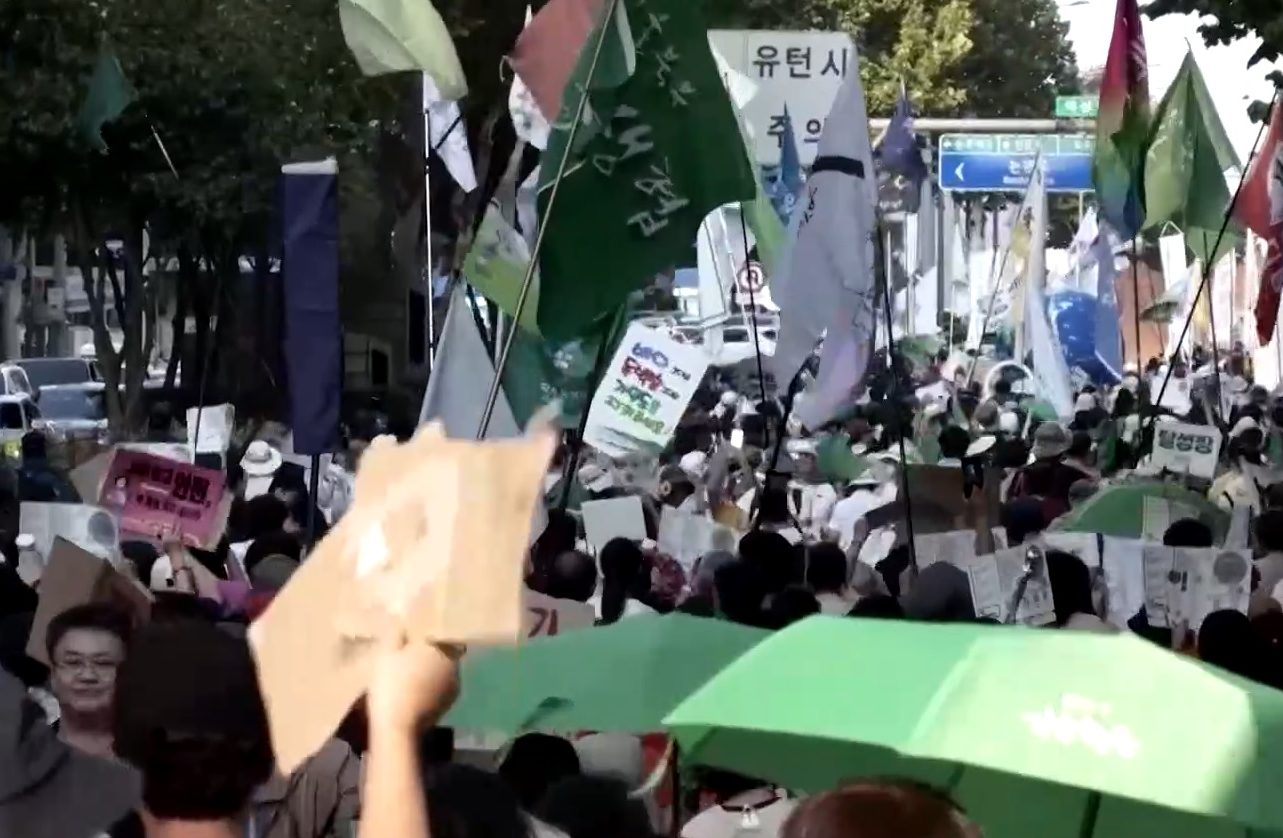Over 30,000 protesters gathered in South Korea’s capital on Saturday, enduring scorching heat to demand more decisive government action against global warming. With temperatures soaring above 30 degrees Celsius (86 degrees Fahrenheit), demonstrators of all ages marched in the largest protest of the year, causing traffic jams in central Seoul. They held banners that read “Climate justice,” “Protect our lives!” and “NO to climate villain (President) Yoon Suk Yeol’s administration.”
Environmental activist Yu Si-yun, who led the protest, emphasised the severity of the issue: ” Truth is, without the air conditioner this summer was not liveable and people could not live like people. We are facing a problem not unique to a country or an individual. We need systemic change and we are running out of time to act.”
The protest was organised by the 907 Climate Justice March Group Committee and followed a ruling by South Korea’s top court last month, which found the nation’s climate change law inadequate in protecting basic human rights and lacking goals to safeguard future generations. Among the 200 plaintiffs in the case were young climate activists and even infants, who argued the government was failing to uphold citizens’ rights by not addressing climate change sufficiently.
South Korea, targeting carbon neutrality by 2050, is the largest coal polluter in the G20 after Australia, with slow progress in adopting renewable energy. The government reduced its 2030 target for cutting industrial greenhouse gas emissions but maintained the national goal of reducing emissions by 40% from 2018 levels.
Climate change is also affecting South Korea’s iconic kimchi, with farmers and manufacturers reporting that the intensifying heat is compromising the quality and yield of napa cabbage, the key ingredient in the dish.
“Just feel how long this summer has been,” said Kim Ki-chang, a 46-year-old novelist participating in the protest for the third consecutive year. “This is a far greater threat to younger generations, so it’s up to the older generation to take more action on their behalf.”
Seoul has experienced a record-breaking 20 consecutive “tropical” nights, where temperatures do not fall below 25 degrees Celsius (77 degrees Fahrenheit).
